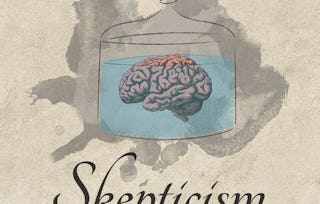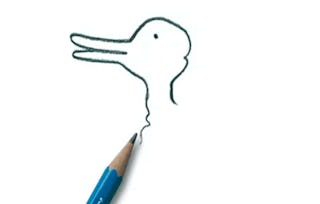This is a course about the history of Skepticism from the ancient Greeks to today, with special attention to the political ramifications of questioning man's ability to know the world and himself with any certainty. We will discuss the debates raging between Plato and the Sophists, the rise of Christianity in the Roman world, and the so-called 'Skeptical Crisis' of the Renaissance as well as Pierre Bayle's Skepticism and David Hume's. In addition the Natural Law tradition will be explored and the relationship between Skepticism and Conservatism.

The Politics of Skepticism

40 reviews
Skills you'll gain
Details to know

Add to your LinkedIn profile
See how employees at top companies are mastering in-demand skills

There are 8 modules in this course
We will discuss the historical and philosophical backgrounds to Plato's rejection of democracy: they will turn out to be intimately connected to his rejection of Skepticism. In addition we will present Karl Popper's highly critical assessment of Plato's 'totalitarian' alternative.
What's included
3 videos3 readings3 discussion prompts
We will sketch some of the skeptical arguments against Christianity developed by Roman philosophers, but we will also see how Skepticism soon turned into an ally of Christian theology. By the end of the seventeenth century, however, Pierre Bayle turned Skepticism into a highly questionable source of support to revealed religion.
What's included
2 videos1 reading1 discussion prompt
We will turn to the relevance of the early modern natural law tradition, serving as as an antidote to Skepticism. Grotius's efforts will be discussed, and we will see how during the eighteenth century David Hume pushed Skepticism to its ultimate and highly disturbing conclusion.
What's included
2 videos2 readings1 peer review1 discussion prompt
We will focus on the intimate relationship between Skepticism and the origins of eighteenth-century conservatism: Edmund Burke's analysis of the French Revolution will be put into perspective. But we will also pay attention to the way in which Skepticism came to serve as a progressive and liberating force, for instance in its critique of biblical authority.
What's included
2 videos1 reading3 discussion prompts
We will discuss the specific and influential way in which Rene Descartes defined the problems of Skepticism, not only the question whether knowledge is possible, but also the question whether the external world and all the objects and properties in it, really exist. But instead of considering Descartes’ own rationalist response, we will then move on to consider the alternative responses of John Locke, Charles Peirce, and John Austin.
What's included
4 videos3 readings1 peer review3 discussion prompts
We will address the question whether, in what sense, and to what extent, Skepticism provides good reasons to do away with prejudices and to adopt religious tolerance. First we will distinguish carefully between belief and truth. Then we will consider the attitude of the positive Skeptic: truth exists, but all our beliefs are and remain prejudices. Finally, we will investigate the role that this epistemic predicament plays in arguments for toleration.
What's included
4 videos1 reading2 peer reviews1 discussion prompt
We will consider Mill’s argument from “the marketplace of ideas” for both freedom of opinion and freedom of expression of opinion. If ideas can compete freely, truth will emerge. Just as a free market is self correcting, speech should not be restricted, because in a free and open encounter, the true and sound ideas will survive, and the false and unsound ideas will vanquish. We will identify the Skeptical assumptions of Mill’s argument and we will evaluate it.
What's included
3 videos2 readings3 discussion prompts
What is the benefit of the doubt? What good can come from the confrontation with alternative views or rival opinions? First we will learn that one of the most effective ways to boost the carefulness of problem solving processes is by pushing on alternatives. Then we will consider the role of organized doubt in meetings, deliberations or political negotiations; to find a solution or to reach an agreement, the participants should deliberately adopt the perspective of the others and make their rival opinions relevant.
What's included
3 videos1 reading1 peer review1 discussion prompt
Instructors


Offered by
Explore more from Philosophy
 Status: Preview
Status: PreviewUniversity of California, Irvine
 Status: Preview
Status: PreviewThe University of Edinburgh
 Status: Preview
Status: PreviewErasmus University Rotterdam
 Status: Preview
Status: PreviewThe University of Edinburgh
Why people choose Coursera for their career

Felipe M.

Jennifer J.

Larry W.

Chaitanya A.
Learner reviews
- 5 stars
70%
- 4 stars
17.50%
- 3 stars
7.50%
- 2 stars
2.50%
- 1 star
2.50%
Showing 3 of 40
Reviewed on Aug 26, 2017
Very good materials and quality videos. Great teachers. This course made me decide upon Erasmus as the university i want to study at, next year.
Reviewed on Sep 11, 2020
Excellent course :-) The videos were interesting, clear and to the point. Both instructors were great, and I enjoyed the scenic settings
Reviewed on Jun 3, 2017
Nice Course. Enjoyed the concepts. Thanks, sincerely

Open new doors with Coursera Plus
Unlimited access to 10,000+ world-class courses, hands-on projects, and job-ready certificate programs - all included in your subscription
Advance your career with an online degree
Earn a degree from world-class universities - 100% online
Join over 3,400 global companies that choose Coursera for Business
Upskill your employees to excel in the digital economy
Frequently asked questions
To access the course materials, assignments and to earn a Certificate, you will need to purchase the Certificate experience when you enroll in a course. You can try a Free Trial instead, or apply for Financial Aid. The course may offer 'Full Course, No Certificate' instead. This option lets you see all course materials, submit required assessments, and get a final grade. This also means that you will not be able to purchase a Certificate experience.
When you purchase a Certificate you get access to all course materials, including graded assignments. Upon completing the course, your electronic Certificate will be added to your Accomplishments page - from there, you can print your Certificate or add it to your LinkedIn profile.
Yes. In select learning programs, you can apply for financial aid or a scholarship if you can’t afford the enrollment fee. If fin aid or scholarship is available for your learning program selection, you’ll find a link to apply on the description page.
More questions
Financial aid available,
¹ Some assignments in this course are AI-graded. For these assignments, your data will be used in accordance with Coursera's Privacy Notice.

